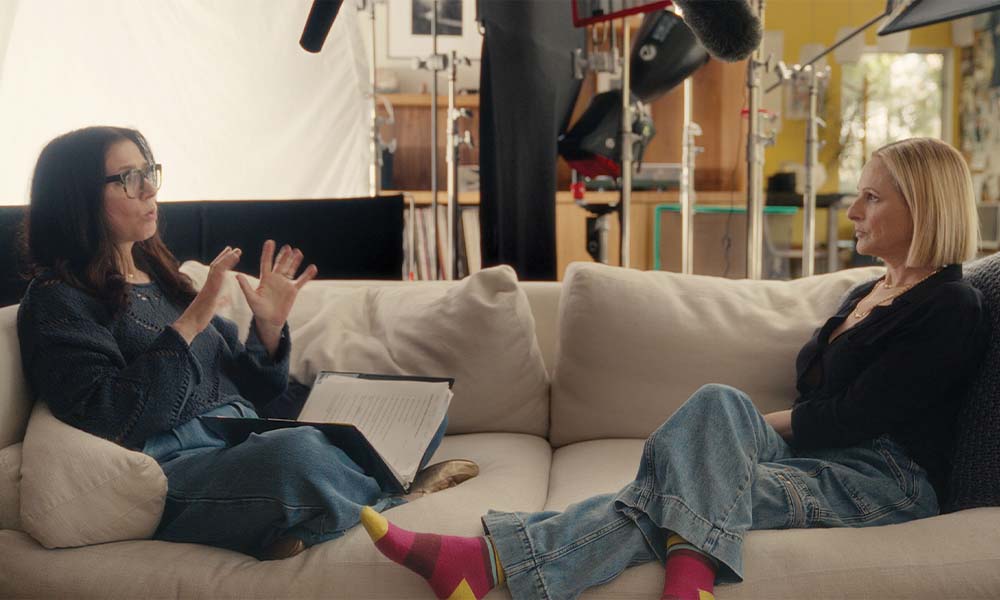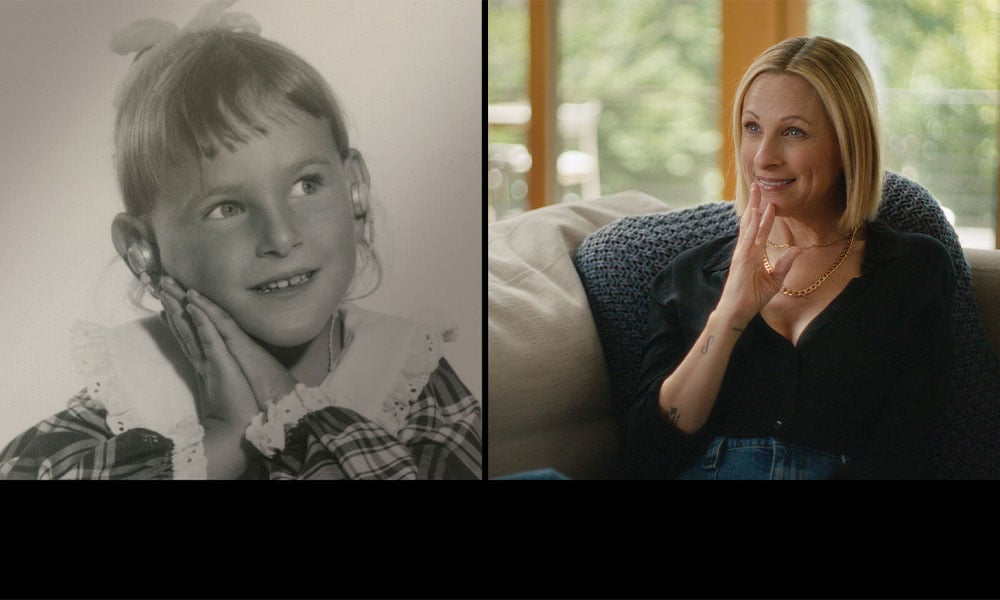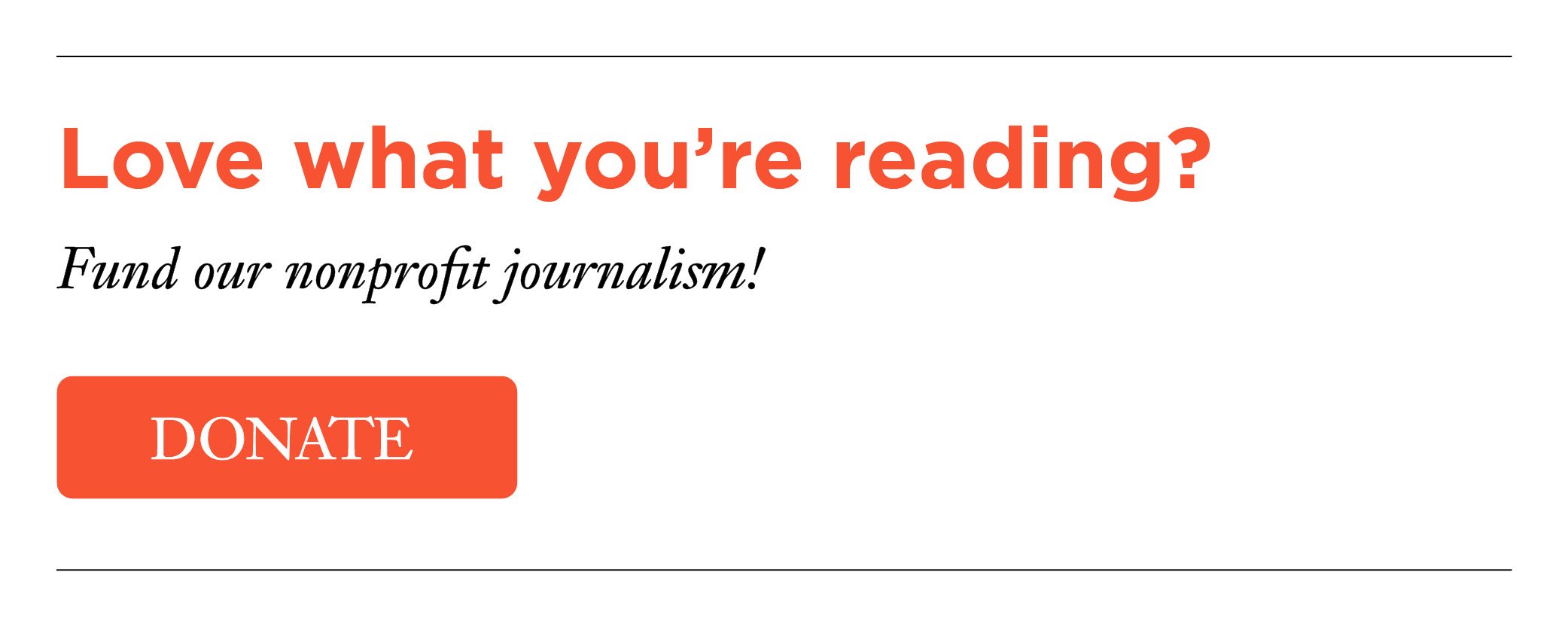Q&A | Shoshannah Stern, Director of New Marlee Matlin Doc, on Growing Up Jewish and Deaf

Marlee Matlin: Not Alone Anymore is an American Masters documentary that premiered October 14 on PBS and runs until November 12. Matlin was the first Deaf actress to win a Best Actress Academy Award for her role in the 1986 movie Children of a Lesser God, portraying Sarah, a young Deaf woman in a tempestuous relationship with a teacher at the school where she works.
As per the film’s promotional materials, Marlee Matlin: Not Alone Anymore “follows Matlin’s life from her own perspective, starting with her childhood in Illinois and through her growing stardom, including her turbulent relationship with costar William Hurt and her struggle to overcome addiction. The film also features never-before-seen home video from her longtime interpreter and producing partner Jack Jason, showing Matlin on the sets of some of her most notable work, including the hit series Seinfeld.” Other highlights include interviews with Henry Winkler, Lauren Ridloff, Aaron Sorkin and others.
Fellow Deaf actor Shoshannah Stern is the director of Not Alone Anymore. She joined Moment Opinion & Books editor Amy E. Schwartz for a discussion (assisted by an ASL interpreter) about the shifting understanding of stories like Matlin’s, as well as her and Matlin’s shared Deaf and Jewish identities. The interview has been lightly edited for clarity.
Marlee Matlin is such an inspiring figure. Were there particular aspects of her story or of her background that you identified with growing up?
I was seven years old when Marlee won her Oscar for Children of a Lesser God in 1987, and watching her accept it was the first time I saw a Deaf person represented on screen. Even though I come from a Deaf family and have many Deaf relatives, it really changed how I saw myself and how I understood the way the world perceived me. I always loved film, I always loved TV, but anytime I imagined myself in a show, I would imagine I was a hearing person, because I’d never seen a Deaf person in any of those stories. So, discovering Marlee really was life-changing for me.
You also share a Jewish background with Matlin, and you’ve said your Judaism is important to you. Was that part of the identification with her?
Yes. Someone who saw the documentary noted that you could feel our Jewish backgrounds showing up, as if woven into a tapestry.
We talk about Marlee’s bat mitzvah, how her rabbi knew sign language, and how my rabbi didn’t, which is why I didn’t have a bat mitzvah. My dad had had a bar mitzvah, but his rabbi didn’t sign either. And so my dad had gone to Jewish school without an interpreter, and it was really hard for him to access that world. He had a hard time learning Hebrew as well as English. That’s why I didn’t have a bat mitzvah—my dad didn’t want to force me to go through similar things. But now I really regret it. In the documentary Marlee and I talk about hosting a bat mitzvah for me. I’m told it’s never too late.
Do you feel as if the Jewish community is welcoming to Deaf people?
My extended family has been part of the Jewish Deaf community in the United States for generations. My grandmothers each had to flee from their home countries. They both came to America, found their community, and both married very handsome Deaf Jewish men.
My grandmothers were raised in oral settings. They both had to learn to speak, and they both were the only Deaf people in their families. And so the pride on their faces when we had Shabbat dinner together, and all of us were able to sign the prayer and talk about anything and everything, that was really something. We would sit there, long after the candles would go out, just talking and talking. And the value of communication and of all of us being able to sign to each other—to have access to history, to have access to stories, to have access to text and see it then explored in our language—it’s why I do what I do, because of my Jewish grandmothers.
Are they still alive to see your work?
Unfortunately, no. One of my grandmothers passed away during the making of the film, but she did get to meet Marlee. She was very interested in and proud of what we were doing. And at the very end of the film, we give her thanks and recognition. Marlee and I both have a big love and a lot of gratitude for our ancestors.
How do Deaf prayers in Hebrew work? Is there a separate American Sign Language (ASL) for prayers?
Kind of. There are some rabbis who will use Israeli Sign Language for prayer. Some will just translate everything into American Sign Language. In ASL’s definition of the Hebrew words, there are some signs for Adonai, for instance, but there isn’t a Hebrew Sign Language. It’s kind of an issue, I guess you could say, within the Jewish community in America. How do you truly access Hebrew? You can learn to read Hebrew. You can translate it, but it’s not like hearing Hebrew and then growing up with it. It’s always been really touching for me to see hearing members of my family singing or chanting and using Hebrew language. That was not something I was ever able to access growing up. And the same for Marlee.
So when you say the prayers, you’re signing the meaning of the prayers?
Sometimes. In my family, we usually read them. We do a lot of the readings and then we talk about the translations and what the readings might mean in English.
Your film has a strong focus on identity questions—being “othered” for being Deaf but also for being female, and for being someone who experienced sexual abuse, which Matlin writes about in her 2010 autobiography I’ll Scream Later.
There’s a lot of archival footage in the film, and it shows the way Marlee was spoken to, and about. She has been before her time in so many ways. She came out with the book before the #MeToo movement, and I just remember that a lot of people at that time didn’t have the vocabulary to talk about what she experienced. We talk about that in the film, the issue of language deprivation.
As a society, whether you’re Deaf or whether you’re hearing, you may have a deprivation of vocabulary. When we expand our vocabulary, then we are able to understand ourselves better. We’re able to frame things better. And I think that’s what the #MeToo movement was.
I remember when I played Sarah in a production of Children of a Lesser God, I couldn’t sleep. I felt sick to my stomach. Sometimes I would throw up after performances, and I didn’t know why until after the #MeToo movement. It helped me realize that the story is about abuse and how at the time we just accepted it as a society, even calling it a love story.
Now, we might ask, is that what love means? But, again, at the time, we didn’t have access to that vocabulary.
There’s a sequence in the film where all these different Deaf actresses talk about playing the character of Sarah, and how the role was empowering for them because it gave them a chance to play a Deaf character in a really meaty role. But you’re saying that in another sense, it’s undermining, considering the power differential between Sarah and William Hurt’s character in the film—a man, a teacher, and someone who can straddle the hearing and Deaf worlds—and the way it’s coded as romantic rather than borderline abusive.
Exactly. There’s a TED talk that I sent to my editors and producers called “The Danger of a Single Story.” Marlee was 19 when she made Children of a Lesser God, and now she’s 60. You can tell she’s grown over time. But still, the one story told in that movie hasn’t changed. Stories are stuck in the reflection of the time that they were told, and they’re stuck in the perception of the person who told it. That’s why we need more stories told by different people with different perspectives.
Do you think the story of Marlee herself, this story that you’re telling in the documentary, can be one of those alternative stories?
I hope so. For a long time, we’ve assumed that if we’re not telling stories for a majority audience, then they’re not accessible. Hearing people have been assuming that we have to tell hearing stories for hearing people about hearing people, even in the documentary form.
Do you mean techniques like voice-over narration?
Right. So instead of voice-over, we added a split screen. Because if you use voice-over and go to B-roll footage or something else, you go away from the face of the person speaking, and you lose their sign language. You’re only hearing the voice of the interpreter, and so the person’s whole voice is gone. We had to think of how we were going to reframe that and break the form itself, and that was such an exciting discovery for us.
At the beginning of Not Alone Anymore, we see you instructing the camera operator about how you want to keep the discussion between you and Marlee silent. The two of you are seen sitting on a couch signing to each other, with subtitles but no voice-over. Was that part of breaking the form?
Absolutely. We wanted to bring the audience into Marlee’s experience and my experience—into how we experience the world.
Part of your film tells the story of the “Deaf President Now” movement in 1986, which saw Deaf students at Gallaudet University in Washington, DC, successfully protest and force the trustees of that institution to replace the hearing person they’d appointed president with a Deaf president, Irving King Jordan. For a lot of people, especially outside the Deaf community, it felt like a civil rights movement happening under our noses that we hadn’t appreciated. Do you see yourself as the inheritor of a civil rights revolution for Deaf people? And if so, where do you go from here politically?
“Deaf President Now” was a great moment. All in the same year we had the first Deaf civil rights movement, the first Deaf president of Gallaudet, and Marlee was the first Deaf Academy Award winner. Yay! And then she was asked, “Everything’s great now, right?”
I wish I could say that it was. We definitely need to have more Deaf people in positions of power. And we also need to listen to Deaf people rather than tell them how they should feel.
Right now with the government shutdown, all the departments of special education are being closed. They’re gone. And so what is the future of Gallaudet? What’s the future of Deaf schools? I don’t know. And the majority of Deaf people I know work at these schools.

Still from “Marlee Matlin: Not Alone Anymore.” Courtesy of PBS.
One really striking element of Matlin’s personality that comes through is that she has been such a fighter from the beginning. At one point, she’s talking about disadvantages she faced as a Deaf actor, and she goes through a whole list of things that were a problem. And then she kind of lifts her chin a little bit and she says, “So, we have to work extra hard.” Does that approach resonate with you?
I think both of us have always had to fight not just the system but also perceptions of us, that we are somehow broken down by the world. I think we both have the desire to reframe that and stand up and say, “We don’t have time. We don’t have the luxury or the privilege to complain or to be sad because there is still so much work to be done.” And the two of us know that even though things are not always easy, we are still very fortunate to be in the positions that we are in, and to have the opportunities that we’ve had.
I mean, the amount of work that is out there for us is a lot. And we would rather use the time to do the work rather than talk about how hard it is to do the work.


